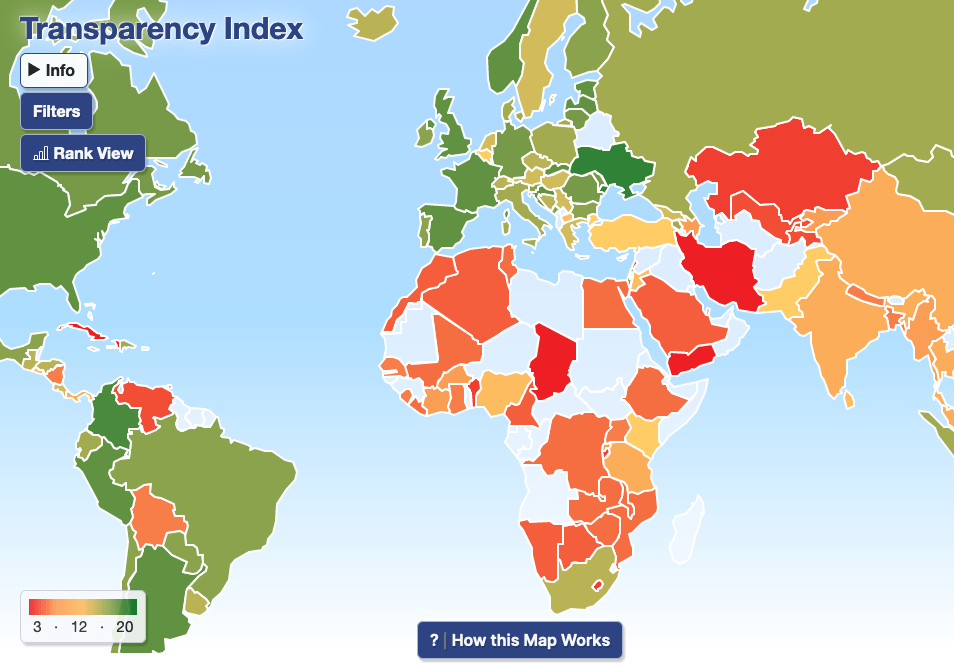
The Government Transparency Index (Government Transparency Index), or T-Index is a composite index developed by The European Research Centre for Anti-Corruption and State-Building(ERCAS) with the objective of studying how transparency can contribute to reducing corruption, focusing on capturing the relevant dimensions for controlling corruption.
The Index is based on two categories of transparency indicators (legal transparency, i.e., de jure, and transparency in practice, i.e., de facto, actual).
In the T-index de jure, 6 legal documents are included that cover freedom of information legislation and international agreements with transparency clauses, establishing national and international transparency standards to which a country adheres. The most widely used transparency measures are based on the U.S. Freedom of Information Act (FOI). Other relevant rules and conventions with key transparency clauses are also checked: the Extractive Industry Transparency Initiative (EITI), the United Nations Convention against Corruption, or the Convention on Combating Bribery of Foreign Public Officials in International Business Transactions.
In the de facto T-index, 14 dimensions are considered, based essentially on the provisions set out in the UN Convention against Corruption and Sustainable Development Goal 16, grouped into three metadimensions that capture basic provisions on what any nation should have for corruption control:
- Transparency of the rule of law by making all laws and regulations, court hearing schedules, and the reasons for decisions available online: This allows for greater participation and scrutiny of corruption trials, as well as general public oversight of the judicial process;
- Transparency as a tool to prevent corruption opportunities, including disclosure of tax and public procurement data, natural resource and land data, company ownership and building permits, among others.
- Transparency as an enabler of accountability, namely the public availability of data on conflict of interest and assets of public officials, allowing the public to monitor improper gain, and the UNCAC specifies the availability of detailed reports on corruption.
Promoter Entity: The European Research Centre for Anti-Corruption and State-Building(ERCAS).
More information: http://www.corruptionrisk.org






